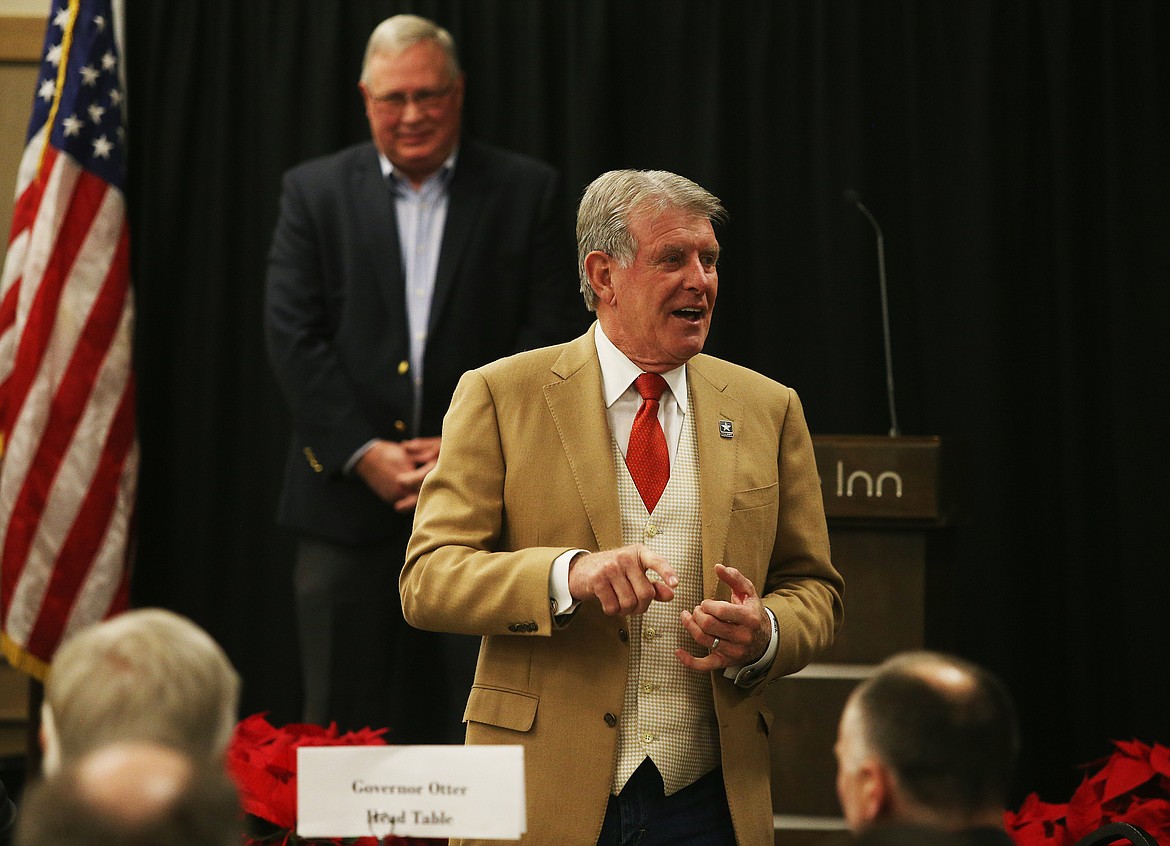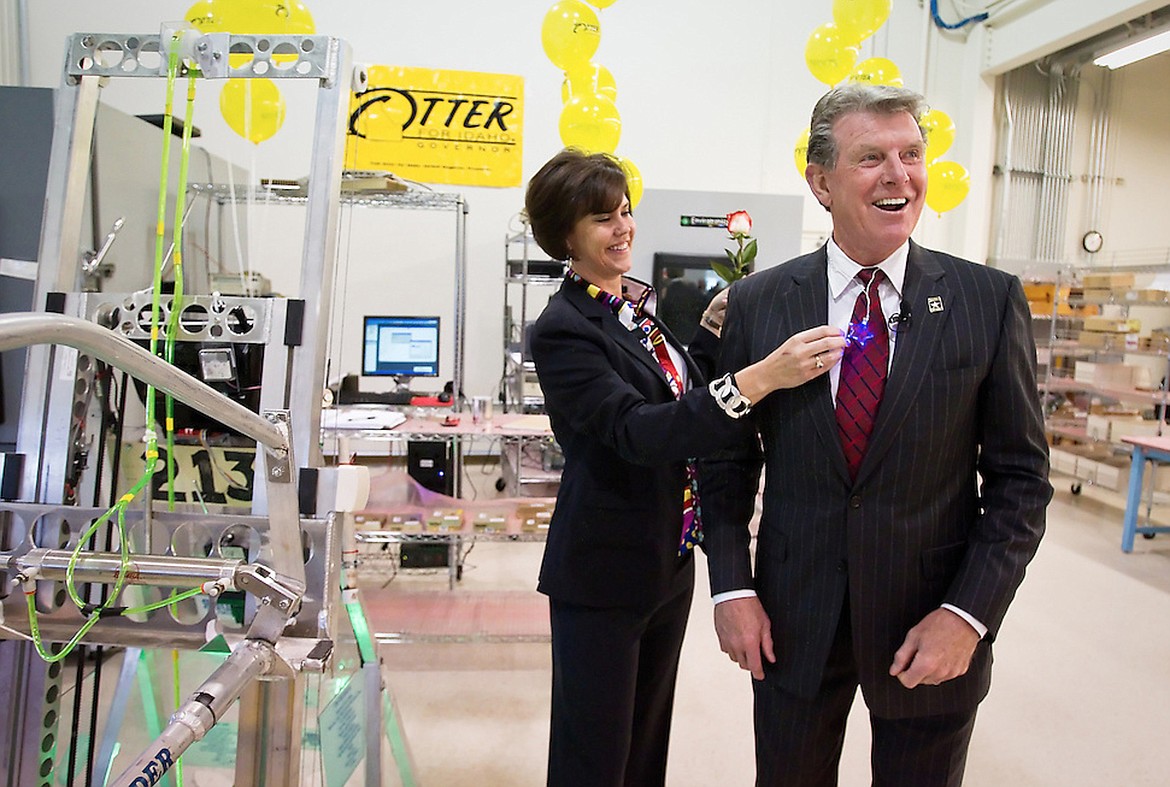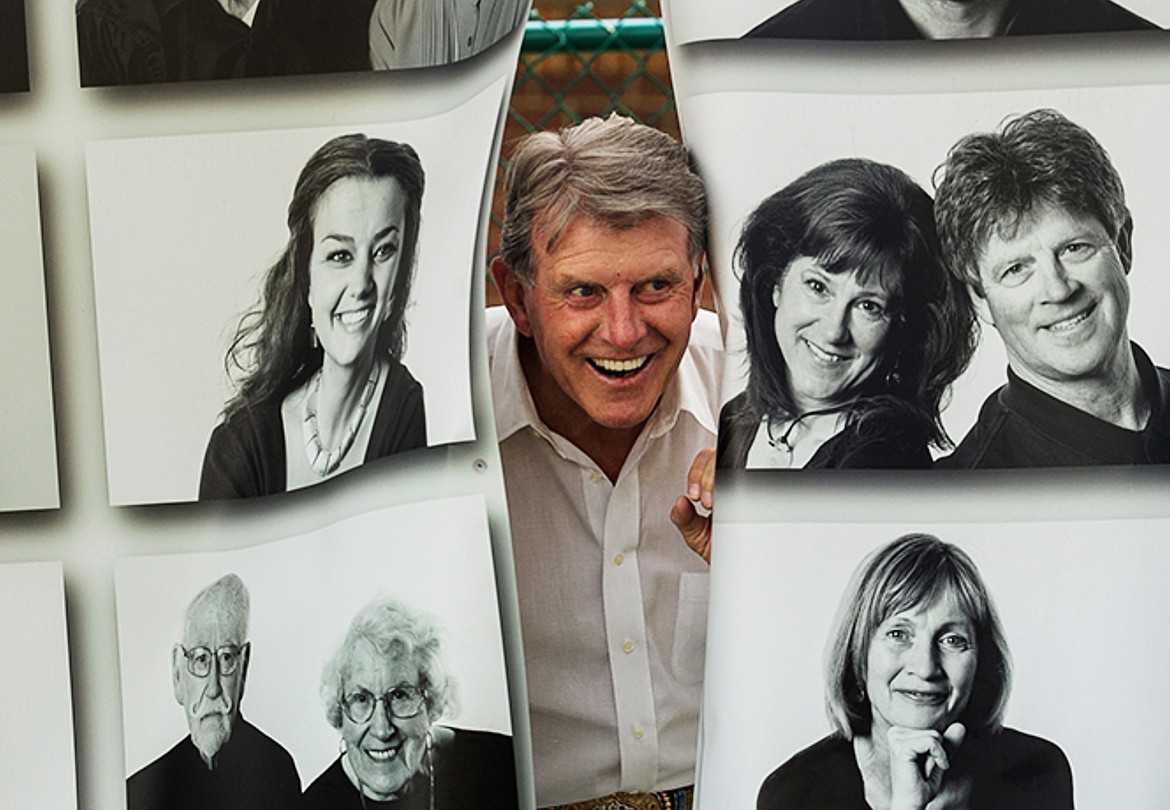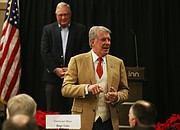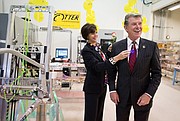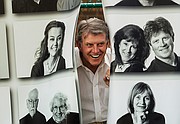Farewell tour hits Cd'A
COEUR d’ALENE — The standing ovation Idaho Gov. Butch Otter received Tuesday afternoon before he even spoke a word was almost as big as his charismatic personality, which many Idahoans have grown to know and love during his years of public service.
"This is a unique experience to be able to stand up here and, trying to start a meeting, you see so many people wanting to take a photo and almost everyone in the room wanting to shake the governor's hand," said Coeur d'Alene Chamber of Commerce President Steve Wilson. "I think that’s only indicative of the kind of governor he has been and the attention that he has given to Coeur d’Alene.
"Our area is absolutely as strong as it’s ever been, and that comes from leadership. So sir, thank you very much. You’ve done a great job."
The Coeur d'Alene Chamber hosted Idaho's 32nd governor during a luncheon in the Best Western Plus Coeur d'Alene Inn as he delivered his 2018 Farewell Address to the Business Community. More than 130 guests attended.
Otter began his political career with the Idaho Legislature from 1972 to 1976, served as lieutenant governor from 1987 to 2001, served in the U.S. House of Representatives from 2001 to 2007, and was elected governor in 2007.
He’s retiring after three consecutive terms and will be succeeded by Gov.-elect Brad Little in January.
"Thirty-six years in public office, 25 elections, 29 opponents," Otter said. "It’s been quite a ride, and we’ve been on that together."
Otter looked back on some of the issues and events that occurred during that ride, including how he and other elected officials navigated the Great Recession.
In 2007, he said, his first budget was $3.2 billion.
"By 2010, my budget was $2.2 billion. We had to make some tough cuts," he said. "There was a lot of editorial angst over some of the things that we did. But we found that if given the opportunity to partnership with what we had to do as the leaders in the state, the legislature and myself, that Idaho would respond. And respond it did."
Although no parks were shut down, they suffered heavy funding cuts because they were among the "nice" rather than "necessary" items on the budget. However, Otter hired former Eagle mayor Nancy Merrill to get community groups such as Kiwanis and 4-H fired up about supporting their local parks.
"She said, 'This park is part of your economic engine, because when people come to this park, they also go to the local convenience store and buy hot dogs and potato chips to go to the park to enjoy it, or they may stay overnight in one of your hotels,'" Otter said.
Before long, civic organizations were painting fences and mowing lawns.
"It was very gratifying," Otter said. "But folks, I’ll tell you, that happened through our state government."
Otter said he’s proud of what has been done for education in Idaho in the past 12 years. The College of Western Idaho, which opened in 2009 with 1,500 students, now has a student population of 33,000 and is the fastest-growing community college in the history of the U.S., Otter said.
"I suspect Eastern Idaho Community College is going to see that very same increase and that very same activity go on," he said.
Idaho's unemployment rate has dropped from 9.2 percent in 2010 to 2.7 percent. Health care professionals and long-haul truckers are now the hardest jobs to fill, Otter said.
"The construction industry is on steroids," he said. "Everywhere you look, there’s cranes poking holes in the clouds, and they’re building more buildings and bigger buildings, and it just continues to go on and on."
With the building boom, Otter explained, those who could have driven long-haul trucks can now find work in town for similar wages, driving concrete or materials trucks for construction companies rather than having to stay overnight while working on the road.
"Who can blame anybody for wanting to be home with their family?" he asked. "It's the community colleges that I believe that are opening a tremendous door to the possibilities of building our workforce that we need, right up here."
When asked by an audience member about his biggest disappointment as governor, Otter said it is the failure of the legislature to recognize the importance of Idaho's infrastructure.
"We do a better job in the state of Idaho than practically any other state in adding value," he said. "Those highways and those bridges are terribly important, and I don't think you can afford to ignore them any longer."
Otter had appointed Little to head a task force on highway funding, only to be met with the response that "they were $280 million short."
"I don't know if Trump and Congress is going to do anything on infrastructure like Eisenhower did," he said. "But it's old. You’ve got to remember, a lot of that, we've redone it from time to time, but most of that was built in the '50s ... I just don't think we need to wait for a major accident, like what happened in the Midwest when that bridge collapsed. We don't need to see 19 lives lost, and a lot of property, before we should be paying attention."
When addressing what this governor's legacy will be, Otter said: "Only the newspapers will describe that, only the folks that want to analyze it will describe it.
"I can tell you this. It's been a tremendous honor for me to be at the head of the state for the last 12 years."


